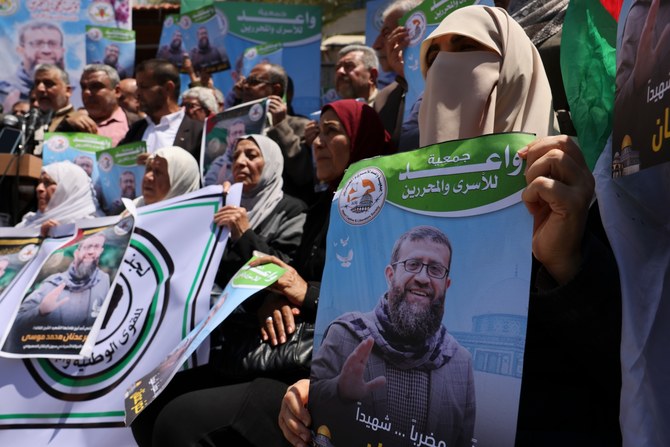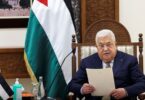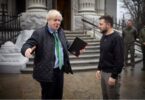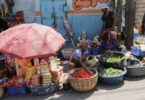Ramzy Baroud
Khader Adnan was not a “terrorist” with “Israeli blood on his hands,” as pro-Israeli propagandists have been repeating in the news and on social media in the last week. If the former Palestinian prisoner, who died in his Israeli cell last Tuesday following 87 days of uninterrupted hunger strike, was directly involved in armed resistance, the story would have had a completely different ending. Armed Palestinian resisters are either assassinated or detained and tried by Israeli military courts, usually sentenced to prolonged terms in Israeli prisons following brief trials that lack any fairness or due process.
Adnan was a charismatic leader, but not an actual fighter. He inspired Palestinians from his humble home in the village of Arraba, southwest of Jenin, which, along with Nablus, is the home of Palestine’s toughest resistance. Adnan had a mathematics degree from the University of Birzeit, graduating in 2001. However, due to repeated arrests by Israeli occupation forces, Adnan, then a young man in his early 20s, was denied the opportunity to pursue a master’s degree from the same university in the West Bank.
He was also denied the opportunity to work in his field, so he instead worked in a bakery in Arraba and eventually established his own small bakery in the nearby village of Qabatiya. But Adnan did more than feed the members of his community bread – he also inspired them. It was this quality that put him on a crash course not only with the Israeli occupation, but also with the Palestinian Authority. Adnan’s first arrest by Israel was in 1999, when the young student was held for four months. After that, he was arrested at least 11 more times and spent more than eight years in prison. On six separate occasions, he carried out hunger strikes, the shortest of which lasted for 25 days. The last was his longest.
Expectedly, Adnan was also an agent provocateur by the standards of the Palestinian security apparatus. In 1999, he was arrested and interrogated by PA security forces for leading a student protest against the visiting French Prime Minister Lionel Jospin. During a speech at Birzeit University, Jospin had lashed out at Palestinian and Arab resistance. To his surprise, a skinny young student in the audience protested, hailing the resistance while speaking out against Western duplicity. Shortly afterward, the French leader was escorted out of the university as angry students pelted him with rocks and shoes. That was the real danger – and power – of Adnan, who, despite repeated Israeli attempts to charge him for supposed terrorist activities, was only held for prolonged periods in so-called administrative detention – a law designed to silence Palestinian academics, intellectuals and activists who play leadership roles in their own communities.
Adnan, however, could not be silenced. Unlike his previous arrests by Israel, Adnan’s final detention on Feb. 5 was different. Israel, this time around, wanted to charge him with incitement to violence and membership of an illegal organization. A conviction of this nature would ensure the outspoken man would spend more than five years in prison.
But why now? A brewing armed rebellion in the West Bank, particularly in the northern regions, where Adnan had much moral authority and influence, meant that his freedom could prove costly for Israel. While armed Palestinian fighters are being killed by Israel at a high rate in Nablus, Jenin, Jericho, Bethlehem and Hebron, the rebellious political leadership is also being sidelined through arbitrary detentions and drummed-up accusations. Indeed, a new leadership has been sprouting throughout the Occupied Territories, offering an alternative not only to the PA, but also to the factional leaderships that seem to operate exclusively around party lines. Though Adnan was affiliated with Palestinian Islamic Jihad, he was a member of the new nonfactional political movement that sought common ground among all Palestinians, regardless of geography, politics or ideology. From the Israeli viewpoint, releasing Adnan would have set a precedent – the same way that Adnan had forced it to set a precedent many years ago, when he weaponized hunger strikes to gain his freedom. Also, Israel did not want Adnan back on the streets, leading mass protests against the Israeli occupation, speaking of resistance and protesting those who collaborated with the Israeli military.
So, they simply allowed him to die. Adnan’s wife, Randa Mousa, told the Palestine Chronicle: “On one occasion (80 days into his latest hunger strike), he lost consciousness inside his cell, which was full of surveillance cameras. The Israeli guards only tried to save him after 30 minutes.” Ultimately, he died alone and with no medical attention, to be discovered lifeless inside his cell by the Israeli prison guards some time later. Shortly after the announcement of Adnan’s death, Palestinians from all resistance groups in Gaza fired rockets toward Israel, mass protests broke out in the West Bank and Jerusalem, and a general strike was declared. The young Birzeit student had grown up to become the most unifying figure in Palestine, even after his death. In his will, Adnan addressed his people as one, without a single reference to factional lines or language. He praised the “revolutionaries” and spoke of an assured victory. The references he made to his wife, children, parents, aunties and uncles were interwoven with references to all Palestinians, everywhere, as if he were saying that all Palestinians are one single family.
Despite the potentially heavy price of Adnan’s death for Israel, such Palestinians represent a real danger. They are often poor, humble, community-based, yet unifying figures who challenge a political discourse that has been at work since the signing of the Oslo Accords; a process that divided Palestinians into classes, turning brothers into enemies, and allowing Israel to maintain its military occupation and apartheid unhindered. Adnan, however, was not the originator of this new thinking. He was an outcome of a whole new political culture that has permeated Palestine for years – a mode of collective resistance that cannot easily be crushed, silenced or killed. His death, though tragic, is likely to contribute to the emerging discourse among Palestinians; that of unity, popular resistance and the hope of an assured victory.







